The UCLA-CDU Dana Center for Neuroscience and Society

The UCLA-CDU (Charles Drew University) Dana Center for Neuroscience and Society brings together scholars from fundamental and clinical neuroscience, social science, education, policy, and the humanities to work with community partners and organizations in South Los Angeles to re-imagine the relationship between neuroscience and the public.
Our mission is to develop a practice of Community Partnered Neuroscience, impacting education, research, and systems change through centering the values of communities historically underrepresented in neuroscience research.
- Read the press release by the Dana Foundation.
- Read the press release by Charles Drew University.
- Read the press release by UCLA.
Come back soon to learn more about our programs, including our academic and community fellowships, seed grant program and co-lab, and human centered design workshops.
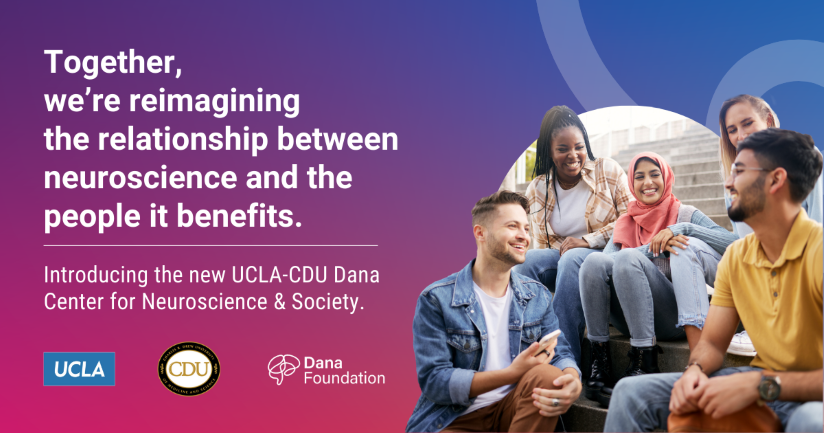
Center Directors
Ashley Feinsinger, PhD; Co-Director
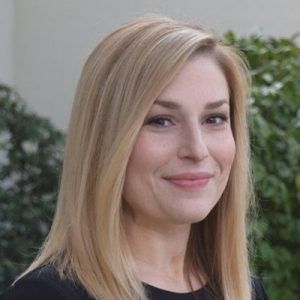 Ashley Feinsinger is Assistant Professor in the Department of Medicine at the David Geffen School of Medicine at UCLA and Chair of the Ethics Education Theme. Her work advances ethical practices in invasive neural device research with humans through qualitative research, conceptual analysis, and cross-disciplinary discussion. Current projects reexamine the concepts of “benefit”, “trust”, and “engagement” in invasive brain research through collaborations with neuroscientists, disability advocacy organizations, and participants. Funded by the BRAIN Initiative, her work has been published in Neuron, Neurosurgery, AJOB Empirical Bioethics, and Neuroethics. She received her Ph.D. and M.A. in Philosophy from UCLA, specializing in philosophy of language and communication.
Ashley Feinsinger is Assistant Professor in the Department of Medicine at the David Geffen School of Medicine at UCLA and Chair of the Ethics Education Theme. Her work advances ethical practices in invasive neural device research with humans through qualitative research, conceptual analysis, and cross-disciplinary discussion. Current projects reexamine the concepts of “benefit”, “trust”, and “engagement” in invasive brain research through collaborations with neuroscientists, disability advocacy organizations, and participants. Funded by the BRAIN Initiative, her work has been published in Neuron, Neurosurgery, AJOB Empirical Bioethics, and Neuroethics. She received her Ph.D. and M.A. in Philosophy from UCLA, specializing in philosophy of language and communication.
Amy Woods, MD; Co-Director
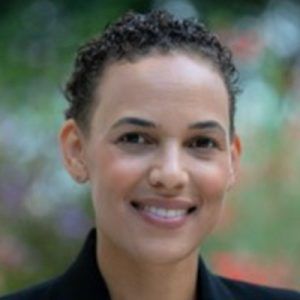 Amy Woods, MD is the founding training director for the Child and Adolescent Psychiatry Fellowship program and a Clinical Assistant Professor of Psychiatry at Charles R. Drew University of Medicine and Science. Dr. Woods graduated with a BA in psychology from the University of California, Berkeley. She subsequently completed a post-baccalaureate program at Columbia University in New York City and returned to California to attend Keck School of Medicine for her medical training. Dr. Woods completed her adult psychiatry residency at UCLA/San Fernando Valley/VA Greater Los Angeles and child and adolescent fellowship at UCLA.
Amy Woods, MD is the founding training director for the Child and Adolescent Psychiatry Fellowship program and a Clinical Assistant Professor of Psychiatry at Charles R. Drew University of Medicine and Science. Dr. Woods graduated with a BA in psychology from the University of California, Berkeley. She subsequently completed a post-baccalaureate program at Columbia University in New York City and returned to California to attend Keck School of Medicine for her medical training. Dr. Woods completed her adult psychiatry residency at UCLA/San Fernando Valley/VA Greater Los Angeles and child and adolescent fellowship at UCLA.
Associate Center Directors
Helena Hansen
MD PhD
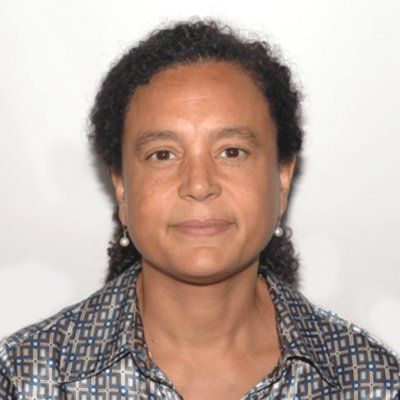 is Professor and Interim Chair of Psychiatry and Biobehavioral Sciences at UCLA’s David Geffen School of Medicine and Interim Director of the Semel Institute for Neuroscience and Human Behavior. She is the author of over 100 articles in leading clinical and social science journals, and of three books: Addicted to Christ: Remaking Men in Puerto Rican Pentecostal Drug Ministries; Structural Competency in Medicine and Mental Health: A Case-Based Approach to Treating the Social Determinants of Health (with Jonathan Metzl); and Whiteout: How Racial Capitalism Changed the Color of Heroin in America (with Jules Netherland and David Herzberg). She has received numerous awards, including an honorary doctorate from Mount Sinai School of Medicine in New York, and election to the National Academy of Medicine
is Professor and Interim Chair of Psychiatry and Biobehavioral Sciences at UCLA’s David Geffen School of Medicine and Interim Director of the Semel Institute for Neuroscience and Human Behavior. She is the author of over 100 articles in leading clinical and social science journals, and of three books: Addicted to Christ: Remaking Men in Puerto Rican Pentecostal Drug Ministries; Structural Competency in Medicine and Mental Health: A Case-Based Approach to Treating the Social Determinants of Health (with Jonathan Metzl); and Whiteout: How Racial Capitalism Changed the Color of Heroin in America (with Jules Netherland and David Herzberg). She has received numerous awards, including an honorary doctorate from Mount Sinai School of Medicine in New York, and election to the National Academy of Medicine
Denese Shervington
MD MPH
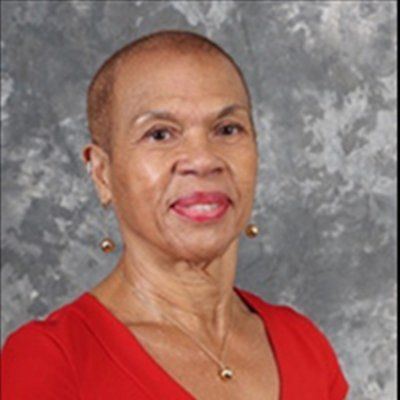 has an intersectional career in public health and academic psychiatry. She is the Chair of Psychiatry and Professor at Charles R. Drew University. Dr. Shervington has held Clinical Professorships in the Departments of Psychiatry at Columbia University and Tulane University. A graduate of New York University School of Medicine, she also received a Masters of Public Health in Population Studies and Family Planning from Tulane University School of Public Health. She completed her residency in Psychiatry at the University of California San Francisco and is certified by the American Board of Psychiatry and Neurology. A Fellow of the American Psychiatry Association (APA) she is a recipient of the APA’s Award for Excellence in Service and Advocacy; prior to which she received the Jeanne Spurlock Minority award. Dr. Shervington is also a member of the American College of Psychiatrists and serves on the Psychiatry Resident-In-Training Commission. Dr. Shervington is the author of Healing Is the Revolution, a guide to healing from historical, intergenerational, interpersonal, and community trauma. She also hosts the podcast Healing is the Revolution in which her guests share and explore their healing journey through their traumas. She is the proud parent of two amazing children – Iman and Kaleb, and three grandchildren – Ayelet, Hadassah, and Yoav.
has an intersectional career in public health and academic psychiatry. She is the Chair of Psychiatry and Professor at Charles R. Drew University. Dr. Shervington has held Clinical Professorships in the Departments of Psychiatry at Columbia University and Tulane University. A graduate of New York University School of Medicine, she also received a Masters of Public Health in Population Studies and Family Planning from Tulane University School of Public Health. She completed her residency in Psychiatry at the University of California San Francisco and is certified by the American Board of Psychiatry and Neurology. A Fellow of the American Psychiatry Association (APA) she is a recipient of the APA’s Award for Excellence in Service and Advocacy; prior to which she received the Jeanne Spurlock Minority award. Dr. Shervington is also a member of the American College of Psychiatrists and serves on the Psychiatry Resident-In-Training Commission. Dr. Shervington is the author of Healing Is the Revolution, a guide to healing from historical, intergenerational, interpersonal, and community trauma. She also hosts the podcast Healing is the Revolution in which her guests share and explore their healing journey through their traumas. She is the proud parent of two amazing children – Iman and Kaleb, and three grandchildren – Ayelet, Hadassah, and Yoav.
Gina Poe
PhD
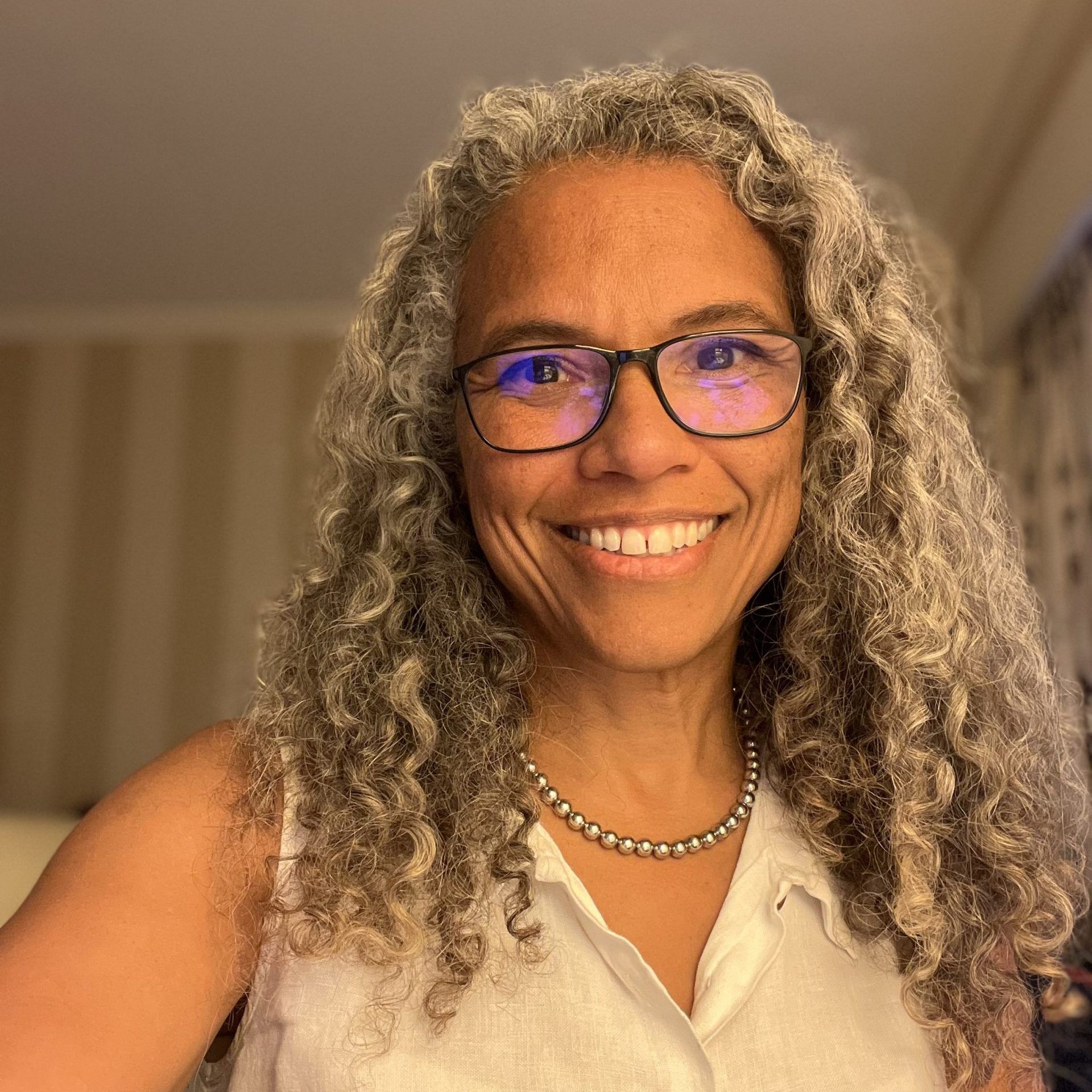 is a neuroscientist and sleep researcher who was born and raised in Los Angeles. She has a research laboratory that studies how memories, emotions, and cognition are served by sleep and how these things are impacted by disturbed or maladaptive sleep. Graduate students in her lab are examining how stressful memories are put to rest during sleep, how we gain insight through sleep in the right place at the right time, and how restful sleep can prevent cognitive problems and addiction. Her work has been featured in major podcast interviews, on Netflix and NOVA, and in talks delivered around the world. At UCLA she also prepares dozens of undergraduates to enter the STEM workforce through funded research experiences and going to grad school as she the Chuck Lorre Scholars Program endowed faculty chair. Dr. Poe has a deep love of Los Angeles and is excited to interact with others bringing society to neuroscience and neuroscience to society.
is a neuroscientist and sleep researcher who was born and raised in Los Angeles. She has a research laboratory that studies how memories, emotions, and cognition are served by sleep and how these things are impacted by disturbed or maladaptive sleep. Graduate students in her lab are examining how stressful memories are put to rest during sleep, how we gain insight through sleep in the right place at the right time, and how restful sleep can prevent cognitive problems and addiction. Her work has been featured in major podcast interviews, on Netflix and NOVA, and in talks delivered around the world. At UCLA she also prepares dozens of undergraduates to enter the STEM workforce through funded research experiences and going to grad school as she the Chuck Lorre Scholars Program endowed faculty chair. Dr. Poe has a deep love of Los Angeles and is excited to interact with others bringing society to neuroscience and neuroscience to society.
Core Directors and Core Supporters
Kimberly Carrillo, Community Core Strategic Planner
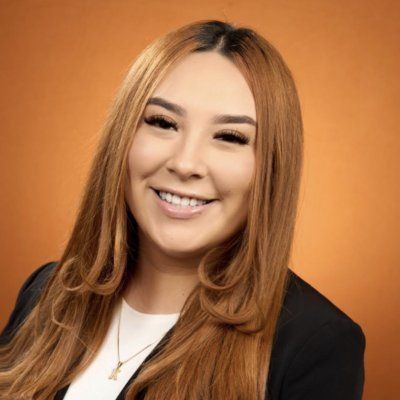
was born and raised in South Los Angeles. As the daughter of undocumented parents, education, well-being, and cultural pride was the core of her upbringing. Throughout her years in public education, she realized how poorly funded her schools were and was determined to understand the power-building strategies that addressed the root causes of poverty, mass incarceration, and the school-to-prison pipeline. Kimberly was introduced to Community Coalition (CoCo) and helped create change through direct immersion in educational equity campaigns to allocate equitable funding to South LA’s highest needs schools. Today, Kimberly works at CoCo to transform the social and economic conditions that foster crime, addiction, and violence in South LA.
Kimberly recently served as LA City Council District 9’s Youth Council Member and as a fellow in the BiNational Confident Futures Fellowship. She was introduced to the Dana Center as a fellow and will be serving as the Community Core Strategic Planner.
Victor Chaban, PhD MSCR
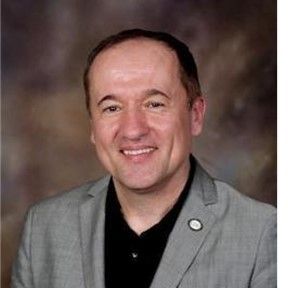 is is the Chairman of the Department of Biomedical Science Education and Professor of Medicine at Charles Drew University. He completed his post-doctoral training in Neuroscience at UCLA and graduate studies in Clinical Research at CDU. He served on the National Institute of Health and several international study sections and holds U.S. Patents. Dr. Chaban is an established expert who contributed significantly to a better understanding of neuroplasticity and cellular reorganization. His achievements are completely original contributions to the field and have been acknowledged by the academic community.
is is the Chairman of the Department of Biomedical Science Education and Professor of Medicine at Charles Drew University. He completed his post-doctoral training in Neuroscience at UCLA and graduate studies in Clinical Research at CDU. He served on the National Institute of Health and several international study sections and holds U.S. Patents. Dr. Chaban is an established expert who contributed significantly to a better understanding of neuroplasticity and cellular reorganization. His achievements are completely original contributions to the field and have been acknowledged by the academic community.
Jeff Donlea PhD & David Krantz, MD PhD
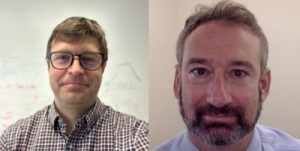 Our laboratories use the model organism Drosophila melanogaster (the common fruit fly) to study the mechanisms by the brain regulates sleep and other behaviors. Our goal is to work with the other groups affiliated with the Dana Center to determine the how disruption of sleep affects neural circuit activity, and whether these affects may be transgenerational. To address these questions, we a variety of powerful molecular-genetic tools that have been previously developed in Drosophila and allow us perform experiments that would be difficult if not impossible in other systems
Our laboratories use the model organism Drosophila melanogaster (the common fruit fly) to study the mechanisms by the brain regulates sleep and other behaviors. Our goal is to work with the other groups affiliated with the Dana Center to determine the how disruption of sleep affects neural circuit activity, and whether these affects may be transgenerational. To address these questions, we a variety of powerful molecular-genetic tools that have been previously developed in Drosophila and allow us perform experiments that would be difficult if not impossible in other systems
Marco Iacoboni, MD PhD; Research and Training Core Director
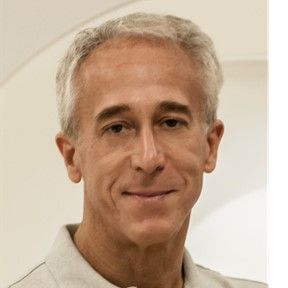 is Professor in the Department of Psychiatry and Biobehavioral Sciences, member of the Semel Institute for Neuroscience and Human Behavior, and of the Brain Research Institute. He is also Director of the Kreshek Family Neuromodulation Lab at the Ahmanson-Lovelace Brain Mapping Center. Using brain imaging and brain stimulation, Dr. Iacoboni investigates neural systems and functional mechanisms of social cognition in health and disease, which is how we perceive, think and make decisions about other people. Recently, Dr. Iacoboni’s lab has been investigating how to modulate implicit bias to reduce group prejudice, using brain imaging, brain stimulation, and virtual reality.
is Professor in the Department of Psychiatry and Biobehavioral Sciences, member of the Semel Institute for Neuroscience and Human Behavior, and of the Brain Research Institute. He is also Director of the Kreshek Family Neuromodulation Lab at the Ahmanson-Lovelace Brain Mapping Center. Using brain imaging and brain stimulation, Dr. Iacoboni investigates neural systems and functional mechanisms of social cognition in health and disease, which is how we perceive, think and make decisions about other people. Recently, Dr. Iacoboni’s lab has been investigating how to modulate implicit bias to reduce group prejudice, using brain imaging, brain stimulation, and virtual reality.
Pat Lowe, Financial Advisory and Community Connector
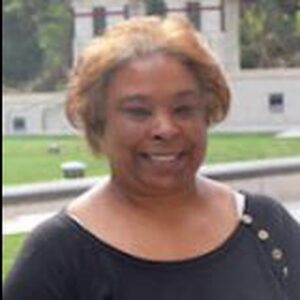 is the CFO in the Brain Research Institute and has engaged in many outreach programs at UCLA and in her community.
is the CFO in the Brain Research Institute and has engaged in many outreach programs at UCLA and in her community.
Aaron Panofsky, PhD
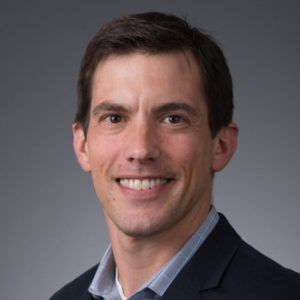 is a sociologist of science and Professor in Public Policy and Director of the Institute for Society and Genetics (ISG) at UCLA. His research focuses on the social implications and history of genetics.
is a sociologist of science and Professor in Public Policy and Director of the Institute for Society and Genetics (ISG) at UCLA. His research focuses on the social implications and history of genetics.
Felix Schweizer, Education Core Director
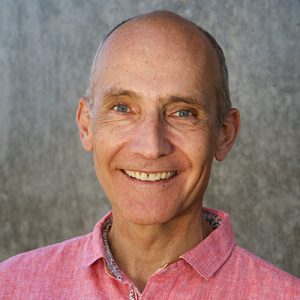 served as the Interim Director of the BRI from 2017-2024. He serves as the Chair of the graduate Neuroscience Interdepartmental Program (NSIDP)
served as the Interim Director of the BRI from 2017-2024. He serves as the Chair of the graduate Neuroscience Interdepartmental Program (NSIDP)
Nick Shapiro, DPhil MPhil, Community Core Director
 is an environmental and health researcher that specializes in community-driven research on health inequity and structural racism. He is the director of Carceral Ecologies, a multidisciplinary lab that documents violence within carceral systems, advances practices of accountability, and supports community self-determination.
is an environmental and health researcher that specializes in community-driven research on health inequity and structural racism. He is the director of Carceral Ecologies, a multidisciplinary lab that documents violence within carceral systems, advances practices of accountability, and supports community self-determination.
Stephanie White, PhD, Education Core Director
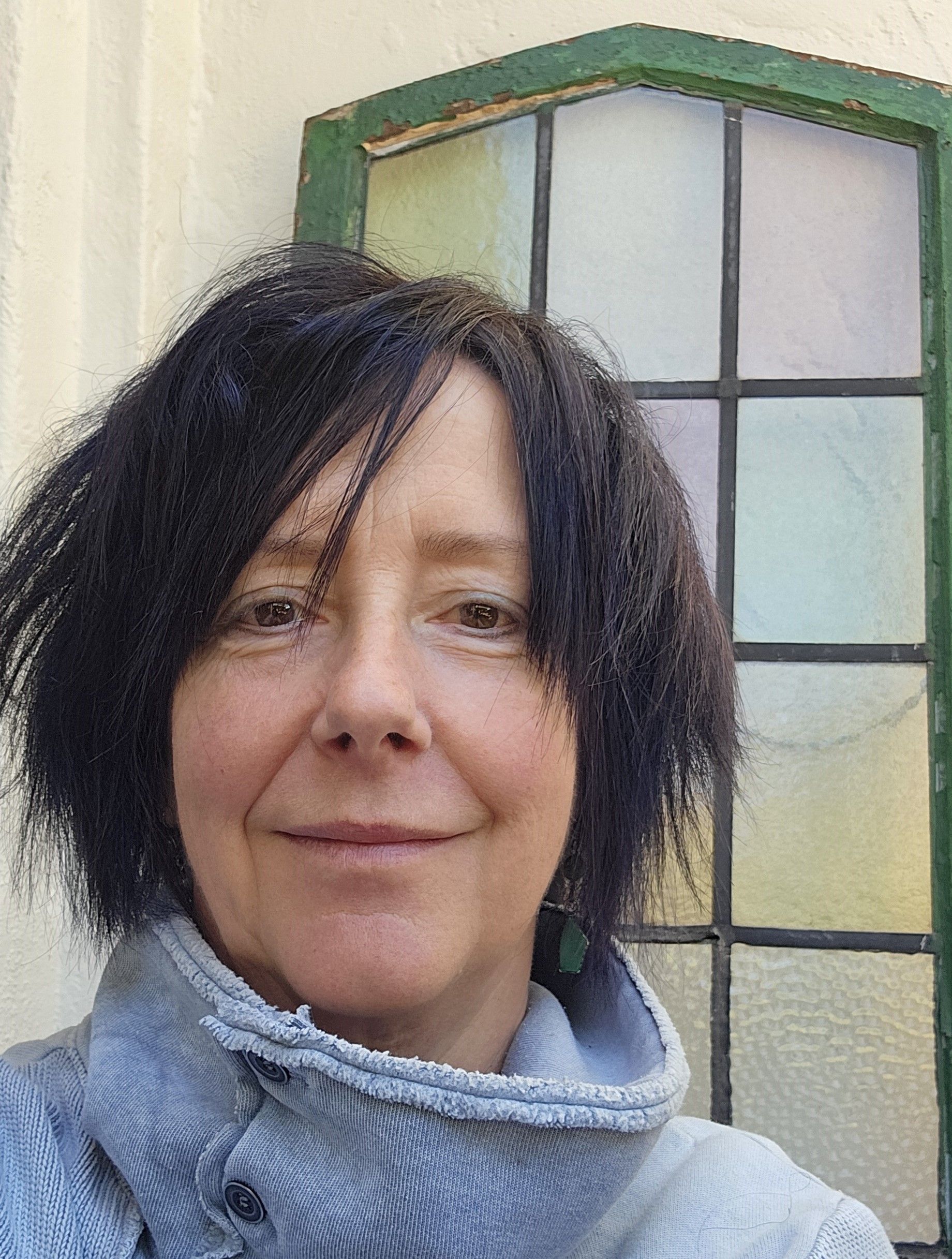 serves as the Chair of the undergraduate Neuroscience Interdepartmental Program (uNSIDP). She is interested in social learning, focusing on learned vocalization in song birds with applications to learning of human speech.
serves as the Chair of the undergraduate Neuroscience Interdepartmental Program (uNSIDP). She is interested in social learning, focusing on learned vocalization in song birds with applications to learning of human speech.
Fellows and Trainees
soon to come!

